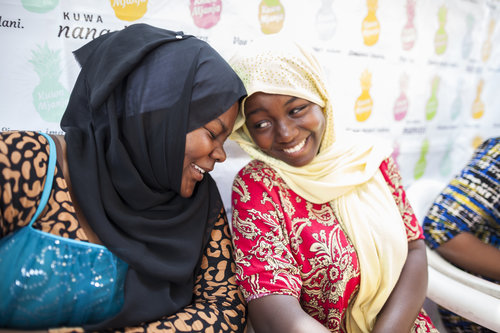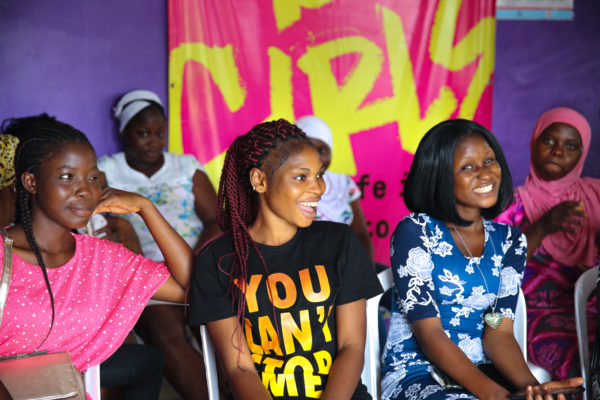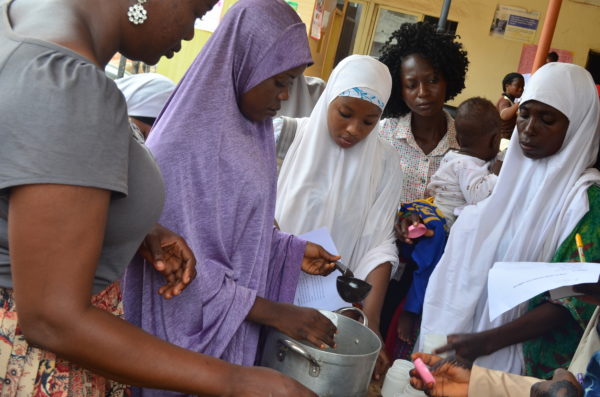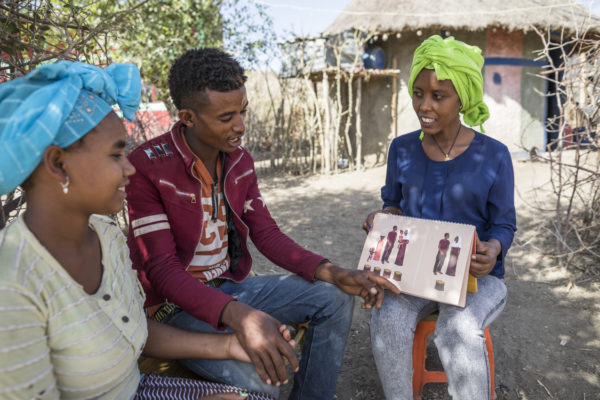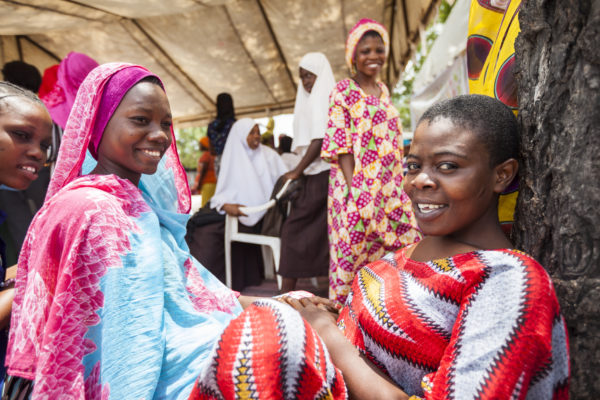Traditional adolescent and youth sexual and reproductive health (AYSRH) programs frame contraceptive use as a step toward a girl’s ability to finish school.
It’s a narrative pulled from decades of traditional research, but one that has failed to resolve a persistent unmet need for modern contraception among adolescents across the developing world. One in five girls in the Global South will become pregnant by age 18; in sub-Saharan Africa, one in five women of reproductive age wants but does not have access to modern contraception.
Resolving the gap requires unveiling new modes of listening to ignite a new way of designing.
Through a Human-Centered Design (HCD) process that elevates young people as equal project designers, PSI’s keystone AYSRH program Adolescents 360 (A360) is flipping the tables: leveraging consumer insights to deliver girl-defined solutions.
Across Tanzania, Ethiopia and Nigeria, many girls have told A360 that motherhood- not school- is one of their greatest attainable joys in life. Yet in the same breath, girls express fear of infertility due to cultural expectations for girls to prove fertility following marriage. As a result, A360’s programs re-frame contraception as a tool in service of girls’ self-expressed life dreams, including pregnancy when she’s ready.
And it’s working. From January through July 2018, A360 has reached and served more than 54 thousand girls. One in two adopters opt for a long-acting reversible contraceptive (LARC). In Tanzania, LARCs constitute the highest proportion of methods chosen.
WHAT WE’RE DOING IN TANZANIA
Through programming that reaches married and unmarried girls, A360’s Kuwa Mjanja creates safe spaces for girls, positioning contraception in service of her goals. Kuwa Mjanja taps into girls’ priorities: finding ways to make money, managing growing responsibility, navigating the transition to adulthood and, for many, embracing the joys of motherhood. We address girls’ fertility fears head on by leading with a return to menses rather than the length of method effectiveness. And it’s working. From June 2017 to June 2018, A360 Tanzania has inspired and served 27,475+ girls with modern contraception. Within that number, we’re seeing more girls with and without children opt for a long-acting method.
WHAT THE DATA TELLS US
From January to June 2018, A360 Tanzania served 26,105 girls with modern contraception (Figure 1), 51% of whom already had a child (Figure 2). Among all adopters, 7 in 10 girls opt for a LARC—a number that outperforms Tanzania’s 20% national average for LARC uptake among adolescents aged 15-19 who use modern contraception (Figure 3). When we tailor solutions to girls’ stated needs, and when we immediately reassure her that contraception is safe, we can position long-acting methods as not just a tool to delay pregnancy—but a plan for girls who wish to space when they have their next child.
Figure 1 – Tanzania Adopters & Conversion Rates Q1 & Q2 2018

Figure 2 – A360 Tanzania Adopters, June 2018

Figure 3 – A360 Tanzania v. DHS Tanzania Method Mix

WHAT WE’RE SHARING
In Tanzania and beyond, A360’s girl-defined solutions reframe contraception’s benefits as relevant and valuable for young people, today. We launched our A360 Blueprint for Change; this programmatic roadmap outlines our learnings for driving AYSRH breakthroughs with and for young people, and delivers a practical guide for replication that can be tailored across country contexts.
Together, we’re fundamentally changing how we work in partnership with young people to yield lasting impact. This is a revolution, with girls at the center.

